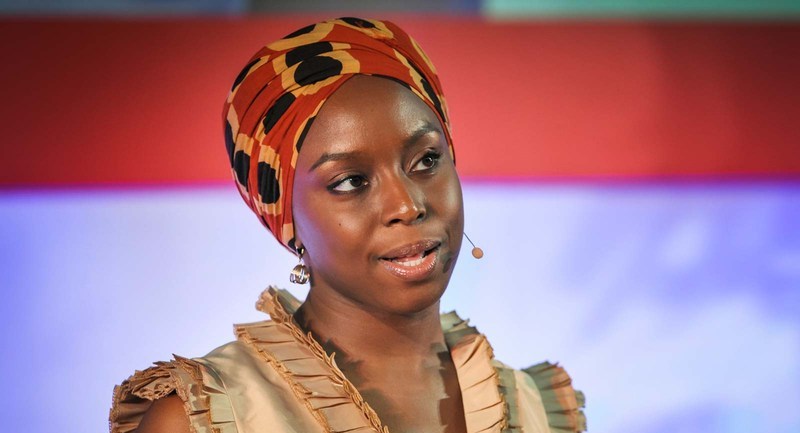
24 Abr Station 4: Africa as a starting point
The tasks performed at the subject (‘Didactic Resources for the Teaching of Language and Literature’) require a detailed description and assessment of the Stations being covered, which we’ll divide in three chapters.
In the current one, our group (made up of Arantxa Estruch, Maryna Onyschenko, Jordi Palacios, Rosa Silla-Baixauli, and myself) worked on the significance of Chimamanda Adichie’s work. This Nigerian novelist allowed for some very interesting discussions centered on how Africa and its people are portrayed on the media in other countries.
After answering several questions that required our input on matters such as media portrayal, poverty, famine, Chimamanda’s figure caught our attention because of her keen interest in acknowledging those issues in her written novels and promoting reading and affordable literature for people in her country with the help of her editor. She’s also tried to raise awareness in her public speeches and talks, such as this TED Talk in 2013:
Obviously there were several conclusions reached within the Stations, involving being open-minded and having different perspectives on a same topic; shrugging-off stereotypes and not judging people on their appearance; and trying to question everything you are being taught, «because there is no such thing as universal truth».
We applied some of these conclusions towards active learning by coming up with different ideas for our future methodology, by placing students in small groups and having them post their work in an educational network (such as Edmodo) for feedback and opinions, and encouraging them to practice their language skills (spelling, grammar) through conversations in this platform.
Finally we discussed the useful devices we can use in order to record our students’ voice, a very engaging method of improving and developing their speaking skills. This analysis was especially interesting for me, as I’m using voice recorders on my TFM project with my pupils. Knowing your voice, your spelling mistakes, tone, volume, projection, breathing… All of those are important towards the feedback teachers and students may get.
As a conclusion, here you can check our ‘imaginary interview’ with Chimamanda Adichie.
Interviewer-. After listening to your conclusions about the dangers of a single story, are your efforts to create an affordable literature for Nigerian people successful?
Chimamanda-. We still have a long way to go and require some help to fulfill our goals. Nevertheless, I think that my efforts may have had an impact, though there’s still a lot to do in order to talk about success.
I-. Have your efforts changed some educational or government policies?
C-. Unfortunately, government policies are not so easy to change. Although I think that some of my efforts did introduce a change in people’s way of seeing literature and they start to get in touch with it thanks to our editors. People in Nigeria like to read, they only need real access to books.
I-. Is the Nigerian government supporting your projects?
C-. Unfortunately they are not. My projects receive more international help than local; thanks to our editor, we can keep working.
I-. Can you point out some improvements or changes in media to broadcast and try to show different points of view and situations not only the negative ones?
C-. The media has enormous power on the society’s way of thinking and sometimes influences our points of view. There should be another focus on the news and not only the negative one, because all we see news are catastrophes, wars and famine. People need hope in their lives, so the media must have wider criteria and show other realities, not only the bad ones.
I-. Do you think that stereotypes and mass-media impede the development of critical thinking?
C-. Absolutely. People will never have a real vision of the story if they only see one side of it. Stereotypes can be fun, only when people are aware they are not totally true, and sometimes totally false. Critical thinking is essential in a society that wants to develop and improve.

Sin comentarios